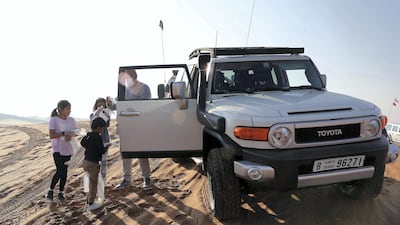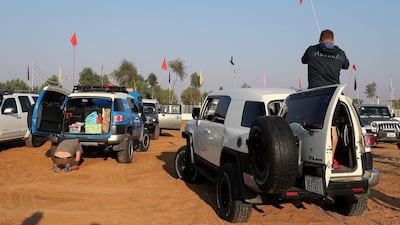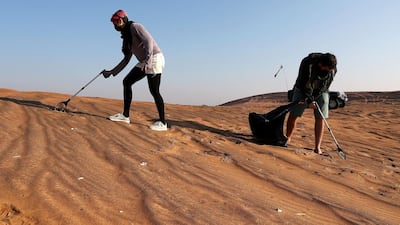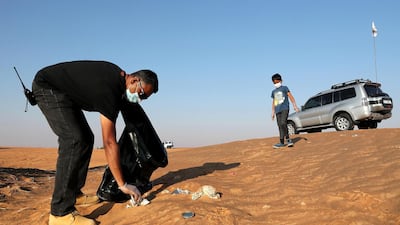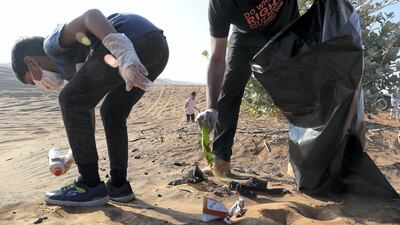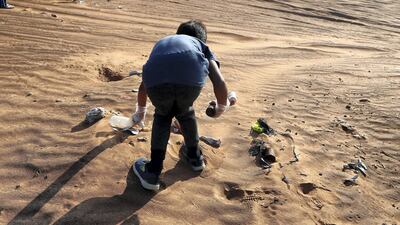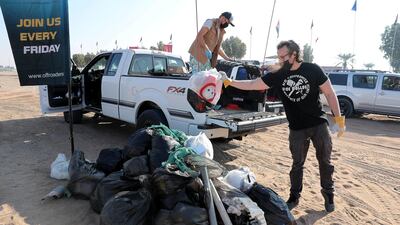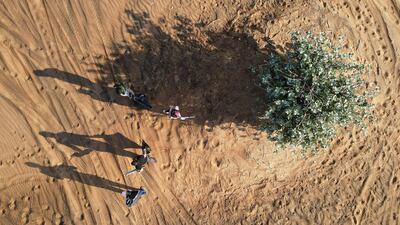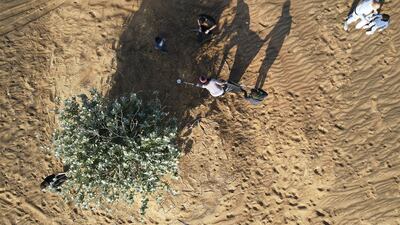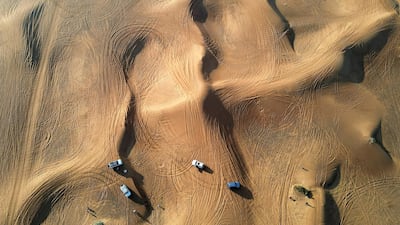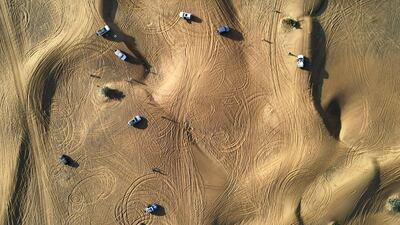As a baby camel walks with its mother in the Abu Dhabi desert, a blue plastic bag catches its eye and is mistaken for food.
Captured on camera by a government environmental researcher, the moment summed up the threat to wildlife caused by irresponsible dumping of rubbish.
Winston Cowie, marine policy manager at Environment Agency Abu Dhabi, filmed the herd on a recent trip to the Al Khatim desert, a popular camping site on the way to Al Ain.
"Whenever I'm out and about in the desert or the coast it is upsetting to see the amount of plastic that does not need to be there," said Mr Cowie, who usually does research work on the damage plastic causes to sea life.
“We are seeing plastic in both those areas.
"It is heartbreaking when you sail up to an offshore island or desert landscape and you see the amount of plastic that has ended up there.
“We want to bring home the message about the impact this has, not just now but 400 to 500 years into the future.
"It can harm generations of species. People don't have an idea about the damage plastic does to these beautiful creatures."
The short video is the latest evidence of the threat plastic poses to wildlife in the UAE.
An off-road driving club recently filmed the carcass of a camel found in the desert, its bones surrounded with plastic from its stomach.
According to a 2018 report published by the United Nations Environment Programme, the global production of all plastics in 2015 was about 400 million tonnes.
Of that, 36 per cent, or some 144 million tonnes, was single-use packaging.
An estimated 11 billion plastic bags are used every year in the UAE, almost four times the average number used per person worldwide.
Abu Dhabi's single use plastic policy is aimed at educating the public and researching the amount of plastic in use, including the 16 most common items that litter the beaches around the world.
It proposes a ban on plastic bags, a levy on single use plastic and a plastic bottle return scheme to encourage recycling.
“Plastic is everywhere,” Mr Cowie said. He recently worked on a documentary that found plastic in 80 per cent of turtles that washed up on the UAE beaches.
“Everyday items like coffee cups and balloons are commonplace," he said.
“We need to hit home that this is having a real impact in our environment.”

